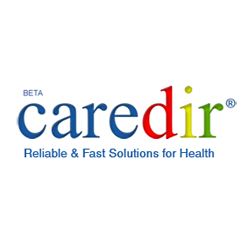Can Health Websites Be Disruptive or Condemned To Be Retro?

There are groups of medical researchers hoping to help people seeking ways to know the validity of online medical information and easy-to-reach free content for patients with unconventional strategies.
“In 2013, we came across a study by researchers at Campbell University in North Carolina indicating that 9 out of 10 health-related entries on Wikipedia are inaccurate,” Dr.Calik Co-founder of Caredir® said. “Perhaps more alarming still was evidence that medical-related content on Wikipedia was viewed 5 billion times in 2013 alone.” Unfortunately health sites can be edited by anyone even some drug companies have even been accused of deleting side-effects information from the sites, Daily Mail notes.
There’s now even a term for online diagnosers – cyberchondria, which describes how, with so much access to online health data we have right at our fingertips, it’s easier than ever to get confused, frustrated, and in some cases frightened of everything that we run across, or even start worrying that we’ll somehow catch whatever horrible ailment we’re reading about.
The Federal Trade Commission in the USA estimates that over 25 million people will use the internet to search for health information, and of roughly 100,000 “Medical and Health” sites, fewer than half have their content reviewed by doctors. Additionally, Web search rankings are often based on relevance and click-through rates, which can skew the displayed results and research shows that the vast majority of people will take the order of the displayed results as an indication of probability of potential diagnoses. And it’s not just self-diagnosis - in the US roughly 89% of parents have reportedly searched the Internet for information about their children's health concerns, potentially leading to negligence and misdiagnosis. The best intentions certainly can be paving a dangerous path.
Prepared by medical experts, many health websites that are supposed to provide information about physical and mental problems people may be facing, have been found to be too difficult for lay people to comprehend. Also in a new study the results showed that only 2.4% of health sites were considered ‘easy to read’ and only 0.4% were below a grade 8 school reading level.
Drs. Metin Okucu and Mustafa K. Calik recently founded CareDir.com, an innovative health site that provides ‘easy to read’ reliable health information which has been verified by medical professionals and referenced by the world’s best medical centers in the form of traffic lights labeling system. A traffic lights rating is a system for indicating the status of content using the red, amber, or green of traffic lights. Color-coded information, tells you at a glance about the importance of the content you are reading.
“These studies show that healthcare consumers are progressively relying on forums, video-sharing websites, and support groups for health and wellness information and advice, which could distract them from more reputable and credible sources,” said Dr. Calik. “As a result, they could be counting less on physicians, which in turn raises the danger of obtaining deceptive, incorrect, and untrustworthy information from uncertified web sources.”
Dr.Calik highlights that “Caredir visitors checking symptoms can answer a series of questions for a general idea of what they could be dealing with. Once possible diagnoses are offered, this information can be downloaded, printed or emailed to one’s primary health provider. None of the information is saved once a session ends.”
Health news in Caredir® are categorized by age, gender (men, women, transgender) and again labeled by traffic lights system indicating the importance of the news unprecedentedly.
Caredir 's founders are also cautious about what sort of advertising is permitted – there are no pop-ups, and even if any, health-related ads are also screened and reviewed by the physician team using the same professional standards as the online content.
“With our 30-plus years of experience as physicians, we are acutely aware that any patient looking to research a health concern online is effectively diving into an ocean with no land in sight,” Dr. Calik said. “Navigating a safe course through the ‘ocean’ is well-nigh impossible – but Caredir® wants to offer to health concerned people an unconventional online experience as if in face-to-face interaction with their physicians.”
Although a new start up, Caredir ® was named the winner of 3 Stevie® Awards in a row (Start-up of the Year, Best New Product or Service of the Year and Health Products & Services) at the recent 12th Annual International Business Awards. “It’s wonderful to receive this acknowledgment,” stated Dr. Calik, “but this is only the beginning. We are on a mission to make sure the world is a safer place. Over 12 million Americans are misdiagnosed each year and this is just the tip of the iceberg. We believe that everyone has the right to accurate, unbiased and free medical information that is easily accessible and easy to understand. We plan to make Caredir the number 1 health and medical resource around the world.”
Contact: Mustafa K.Calik, MD
Cardio Vascular Surgeon
Phone : +90 544 4116116
Email : mkcalik@gmail.com
About Caredir ®
Caredir ® is an online health resource moderated by physicians which provides reliable, referenced and fast information about current medical conditions with traffic lights labeling system, answers for symptoms you may be experiencing with an e-maling/printing option for delivering to your physician, labeled complementary & alternative treatments and even health news categorized by gender and age from around the world.
Tags:




